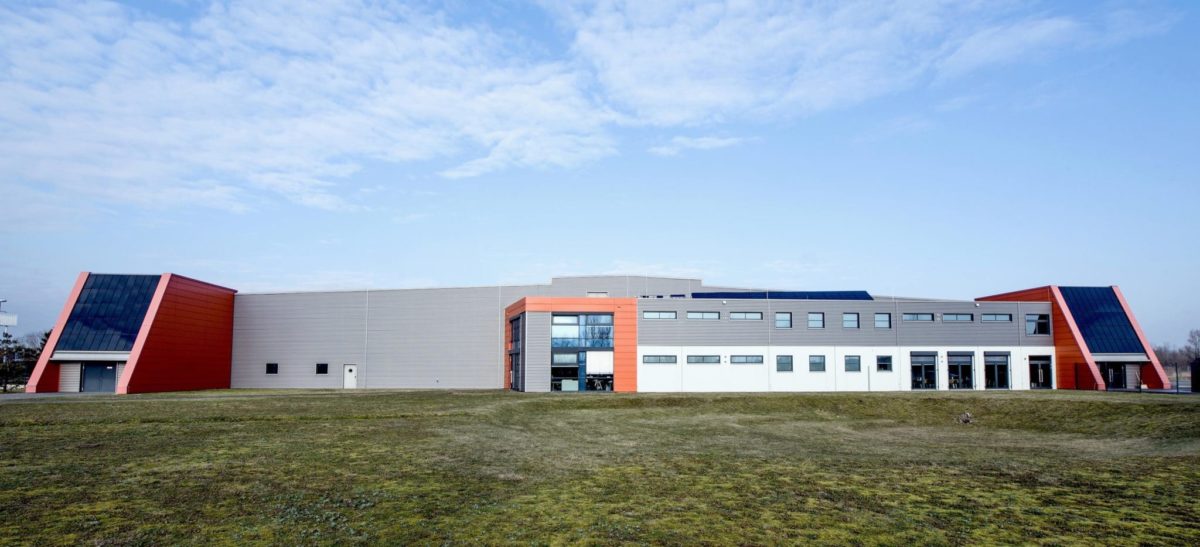From pv magazine Germany
Meyer Burger has said it was taken by surprise when Oxford PV released a press statement last week announcing the completion of an expansion to its factory in Brandenburg an der Havel, Germany, which mass produces perovskite tandem solar cells. Hidden among the details was a statement saying it was terminating its exclusive partnership with the Swiss turnkey equipment supplier.
This news was even more surprising, because Oxford PV's CTO Chris Case admitted in response to a question from pv magazine, that it still lacked one of the machines to manufacture the perovskite solar cells.
With a 19.76% stake, Meyer Burger is the largest single shareholder of Oxford PV and Gunter Erfurt, as CEO of Meyer Burger, sits on the board of directors of the PV manufacturer. However, the unilateral termination of the cooperation agreement does not appear to have been initiated via this route.
Today, Meyer Burger said it learned of the termination through the media and a letter from Oxford PV. “In view of Oxford PV's unexpected announcement, Meyer Burger is considering legal options to enforce its rights,” said the company.
Strategic reasons
Oxford PV cited “its own strategic reasons” as the reason for terminating the cooperation agreement. In response to an inquiry from pv magazine last week, Oxford PV explained the termination by saying Meyer Burger had changed its business model, and these changes are not compatible with its own plans.
In 2019, the two PV companies entered an exclusive partnership. Their goal was to make the mass production of perovskite tandem solar cells based on Meyer Burger's heterojunction technology market ready. To this end, Meyer Burger developed the production equipment and maintained the partnership when it announced its strategic transition from equipment manufacturer to solar cell and module producer.
Meyer Burger's production facilities in Germany’s Bitterfeld and Freiberg have since ramped up, each with 400 MW of annual capacity. Oxford PV, which is in the process of setting up a 100 MW production facility for its tandem cells in Brandenburg an der Havel, is not yet ready.
Originally scheduled to start production this summer, Friday's announcement now says this is targeted for 2022. The reason for the delay is on the equipment side and the impact of the Corona pandemic, Oxford PV said when asked by pv magazine.
Meyer Burger says it is skeptical about such an imminent production start. “Meyer Burger's assessment was and is that perovskite tandem technology will only reach the technology and production maturity, product reliability and cost structure required for competitive mass production in a few years' time.”
Popular content
Nevertheless, perovskite tandem solar cells remain an integral part of the Swiss manufacturer's technology roadmap. Especially since Meyer Burger has a large portfolio of processes, technologies, and production techniques for its own potential mass production of tandem solar cells and modules, based on its own developments and know-how, it said.
“This includes the essential manufacturing processes and machines for perovskite tandem solar cells and corresponding solar modules with Meyer Burger's proprietary Smartwire interconnection technology,” it continued. It said these are essential for the cost-effective mass production of reliable products.
Oxford PV, in turn, is one of the pioneers in the development of perovskite technology, which enables significantly higher efficiencies than crystalline PV products. In December 2020, for example, the company set a new certified world record efficiency of 29.52% for its perovskite solar cells. However, no PV manufacturer in the world has yet succeeded in transferring its successes from the laboratory to mass production.
In this respect, too, Oxford PV aims to be a pioneer with its plant in Brandenburg an der Havel. “Since 2017, we have been operating a small volume line on site, which has allowed us to optimize our product and verify that we are achieving our long-term stability and manufacturability targets,” CEO Frank Averdung said after Friday's announcement.
“Now that the technology is ready to go and the factory build is complete, we look forward to the journey ahead to achieve our mission of making perovskite photovoltaics a mainstream solar technology.”
It was the following sentence that caused some buzz – at least on the Swiss side – over the weekend: “With the achievement of this factory milestone, Oxford PV has ended its exclusive relationship with Meyer Burger.”
Despite the termination of the cooperation agreement, Oxford PV states that it does not expect this to have any impact on the delivery of the remaining machines and that Meyer Burger will fulfill its contractual obligations.
Regarding the intended scaling, the PV manufacturer refers to other production equipment suppliers for heterojunction solar cells. In addition, the company says it will rely on industry-standard equipment for thin film production for the perovskite top cell. There are many alternative suppliers for this as well, Oxford PV said. Therefore, based on its own growth plans, it will source equipment from other suppliers in the future.
This content is protected by copyright and may not be reused. If you want to cooperate with us and would like to reuse some of our content, please contact: editors@pv-magazine.com.



By submitting this form you agree to pv magazine using your data for the purposes of publishing your comment.
Your personal data will only be disclosed or otherwise transmitted to third parties for the purposes of spam filtering or if this is necessary for technical maintenance of the website. Any other transfer to third parties will not take place unless this is justified on the basis of applicable data protection regulations or if pv magazine is legally obliged to do so.
You may revoke this consent at any time with effect for the future, in which case your personal data will be deleted immediately. Otherwise, your data will be deleted if pv magazine has processed your request or the purpose of data storage is fulfilled.
Further information on data privacy can be found in our Data Protection Policy.